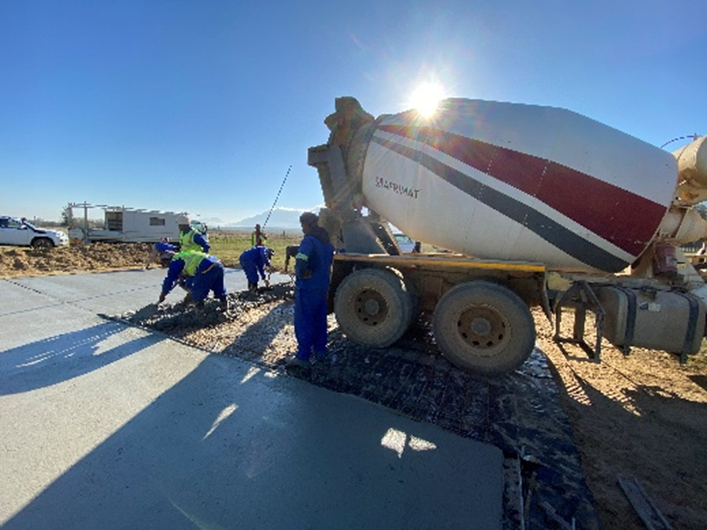The conversation around infrastructure is no longer limited to bricks, steel, and concrete. It’s about creating systems that embody equality, resilience, and innovation — the three pillars of FIDIC’s 2025 theme, “Smart Infrastructure: Equality, Resilience, and Innovation for a Sustainable World.”
At Zutari, a firm with over 90 years of engineering excellence across Africa and the Middle East, smart infrastructure is about more than construction. It’s about shaping living legacies that uplift communities, catalyse economies, and prepare nations for what comes next.
A striking example of this philosophy in action is the Tshwane Automotive Special Economic Zone (TASEZ) — one of the most significant and most ambitious infrastructure developments ever undertaken in the City of Tshwane.
Engineering Against the Odds
Appointed on the eve of South Africa’s 2020 lockdown, Zutari partnered with the Coega Development Corporation (CDC) to deliver civil and structural engineering for TASEZ — including all enabling bulk infrastructure (Stages 1–6) and the first phases of supplier facilities.
The challenge was immense: global supply chains were paralysed, traditional workflows disrupted, and deadlines immovable. Ford’s new Ranger model launch depended on the project’s timely completion.
Zutari’s response was to go fully digital and agile. Virtual collaboration became the lifeline across teams, regions, and partners. Smart, iterative design methods replaced traditional step-by-step processes, allowing progress under pressure. The approach didn’t just save the project — it redefined how large-scale infrastructure could be delivered in a digital age.
Equality in Action: Empowering Local Communities
For Zutari, infrastructure success isn’t only measured in concrete poured, but in lives transformed. The TASEZ project was designed as a catalyst for inclusive socio-economic growth.
Through the project, 1,131 local jobs were created, 908 individuals benefited from training programmes, 106 SMMEs contributed 36% of contract value, and R272 million in work packages went directly to local businesses.
Importantly, 70% of all labour had to come from neighbouring communities, with a deliberate emphasis on women, youth, and people with disabilities. Training extended far beyond technical trades — including project management, business ethics, SHE compliance, and financial literacy — turning local workers into entrepreneurs equipped for long-term success.
Resilience Through Skills and Systems
True resilience is both structural and social. Zutari’s approach ensured that the benefits of TASEZ would outlive the construction phase.
A comprehensive training programme covered trades such as bricklaying, plumbing, carpentry, electrical work, and concrete construction, empowering participants with marketable, certified skills.
Non-technical education in business management and contract administration further enabled SMMEs to grow sustainably.
This dual focus — engineering excellence and human capital development — transformed resilience from a technical concept into a lived experience for communities surrounding the project.
Innovation Through Collaboration
TASEZ also stands as a blueprint for collaborative innovation. Nine separate FIDIC-based contracts had to run concurrently, requiring synchronisation between Ford, the CDC, multiple government departments, and an array of contractors and suppliers.
Zutari played a pivotal role as both engineering partner and systems integrator, facilitating digital-first project coordination, agile workflows, and knowledge sharing.
This collaborative success ensured Ford’s Ranger production remained in South Africa — safeguarding billions in investment and positioning Tshwane as Africa’s first Automotive City.
The Legacy of Smart Infrastructure
Beyond the numbers, TASEZ represents a shift in thinking. Smart infrastructure is not about scale; it’s about sustainability, equity, and foresight.
At Zutari, this philosophy guides every project — from schools and bridges to smart cities and special economic zones. “When infrastructure is smart, it doesn’t just connect roads and factories,” says the team. “It connects people to opportunity, communities to prosperity, and nations to possibility.”
TASEZ proves that when innovation meets inclusivity, infrastructure becomes more than an engineering achievement — it becomes a living legacy for generations to come.







